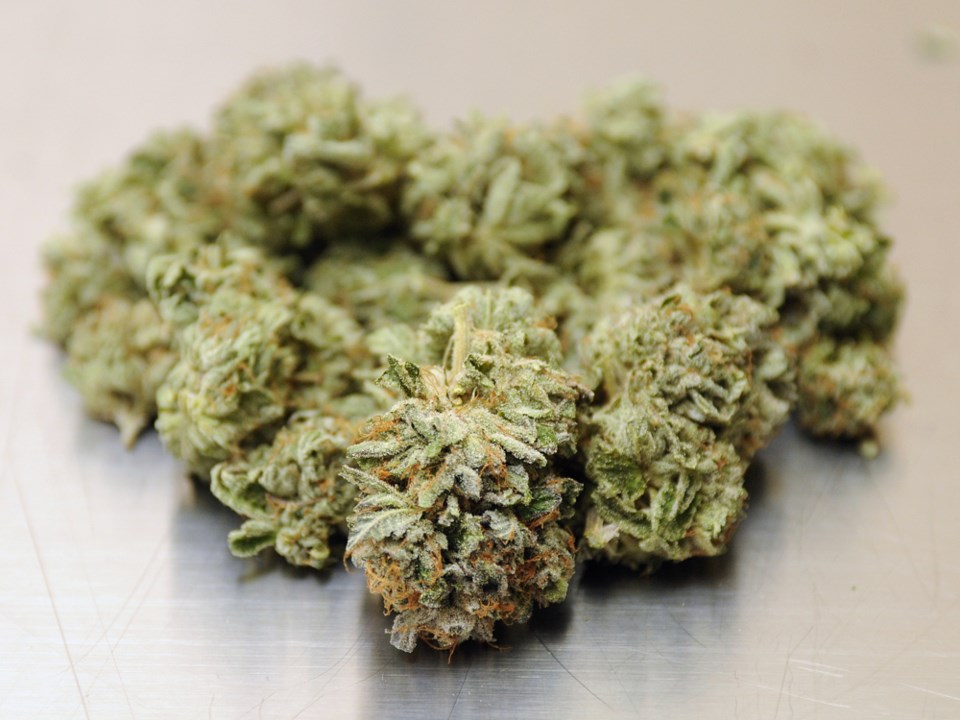A B.C. Supreme Court decision issued Thursday has ordered the closure of more than 20 illegal marijuana dispensaries named in a lawsuit filed by the City of Vancouver.
“This decision reaffirms the City’s authority over land use and our municipal business licensing for cannabis retail, and confirms the regulatory regime introduced in 2015 was well within the City’s jurisdiction to establish,” Kaye Krishna, general manager of development, buildings and licensing, said in a press release. “It also signals that any cannabis retail store operating outside City regulations can and will be enforced against using all the tools at the City’s disposal to the fullest extent moving forward.”
The city had filed a total of 53 injunctions against unlicensed marijuana-related businesses since enforcement started in April 2016. Some of those operators had already closed before the case was heard in court in September, however, the remaining 28 stores have been ordered to close or face court-ordered fines or jail time, or both.
Krishna said the city does not yet have a plan or timeline for when it might start enforcing the court ruling.
“We just got the ruling today, it’s quite lengthy,” she told reporters. “We need to understand what the intention of the courts were… We’re working with our legal staff, we need to work with VPD, as well as the province, who has a new authority now around enforcement, so we all need to coordinate on figuring out what the next steps are.”
She also said the city will forge ahead with enforcement, even if the court ruling is challenged.
Between 2013 and 2015 the number of illegal marijuana-related businesses in the city grew by 100 per cent per year, the city said, and in the first six months of 2015 the number of dispensaries increased from 60 to 100.
In April 2016, the city enacted its licencing regulations for marijuana dispensaries and all existing dispensaries at that time were given until the end of the month to close or face enforcement — 31 complied and another 71 have since complied with the regulations and closed or are no longer selling marijuana.
In May of that year, the city issued its first set of injunctions against 17 dispensaries that remained open after the April deadline. Since then, a total of 53 injunctions have been issued and the city has handed out 3,713 tickets, totalling close to $3 million in fines.
Of those, just 375 have been paid, totalling $184,000.
The legalization of marijuana in Canada came into force Oct. 17, and more than two months later there are only three legal cannabis stores in B.C., none of which are in Vancouver.
Under the new regulations, all marijuana retail stores are required to obtain a provincial licence as well as a municipal development permit and business licence. Any applications to the province are forwarded to the city for recommendation of approval.
Kathryn Holme, chief licence inspector, said that since Sept. 19 the city has received notification from the province of 14 applications for cannabis stores in Vancouver.
“The city has notified 10 of their next steps and is currently reviewing the remaining four in order to provide them with their next steps,” she said.
Of the 10, nine had already obtained development permits. So far, the city has responded to the province with four letters of recommendation.
None of the 14 that have applied to the province is included in the 28 affected by Thursday’s court ruling.
“The 28 are those that have deliberately chosen to not comply with city bylaws from day one,” Holme said. “Those are not the applications that we’re seeing, we’re seeing applications primarily from those who already have sought land-use approval through our regular process.”
“None of the 28 made attempts, prior to legalization, to get development permits or licences from the city, when that was an option to them at the time,” Krishna added.
This story has been updated since it was originally posted.
@JessicaEKerr



